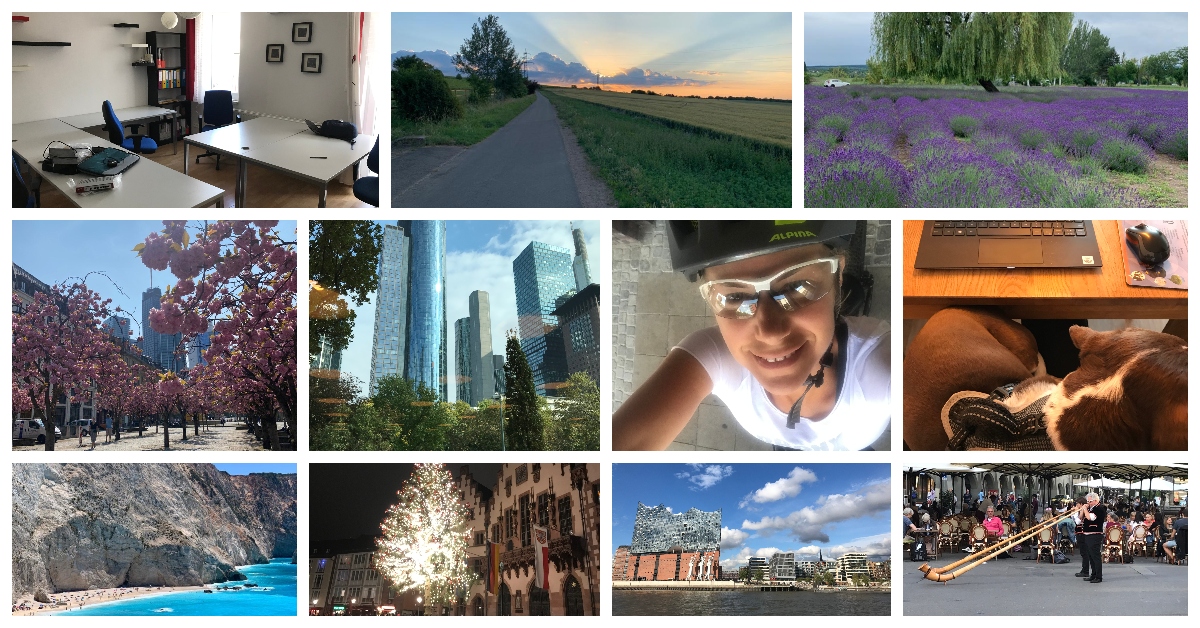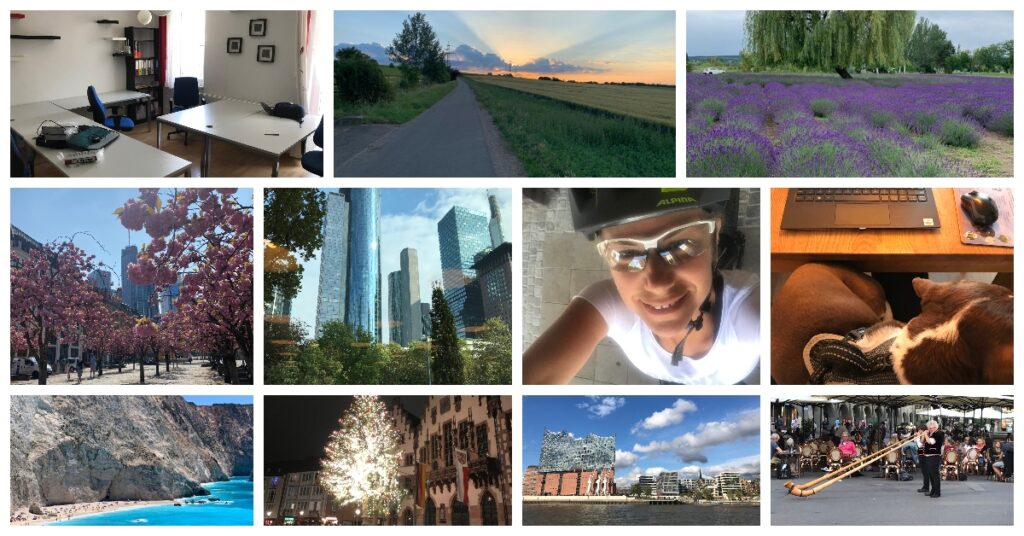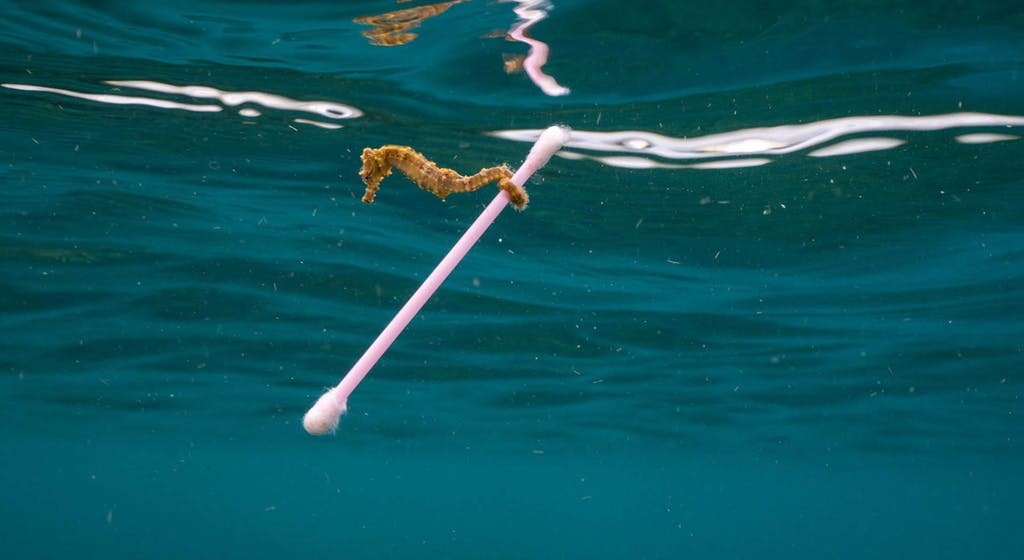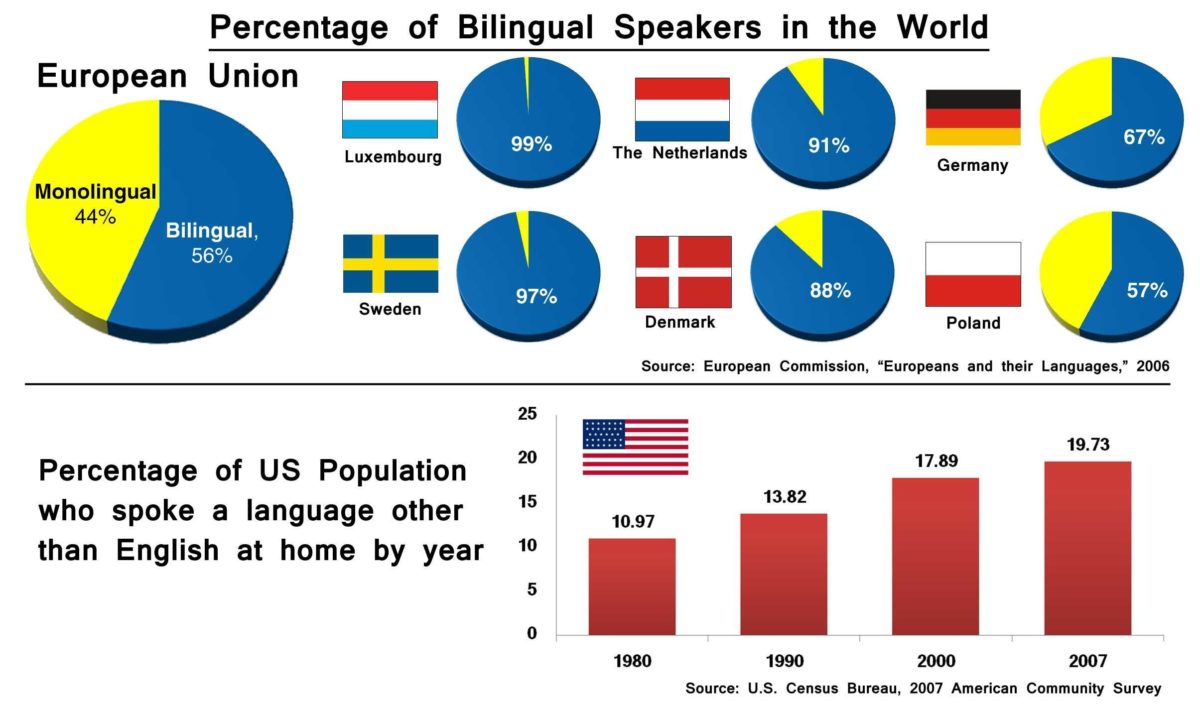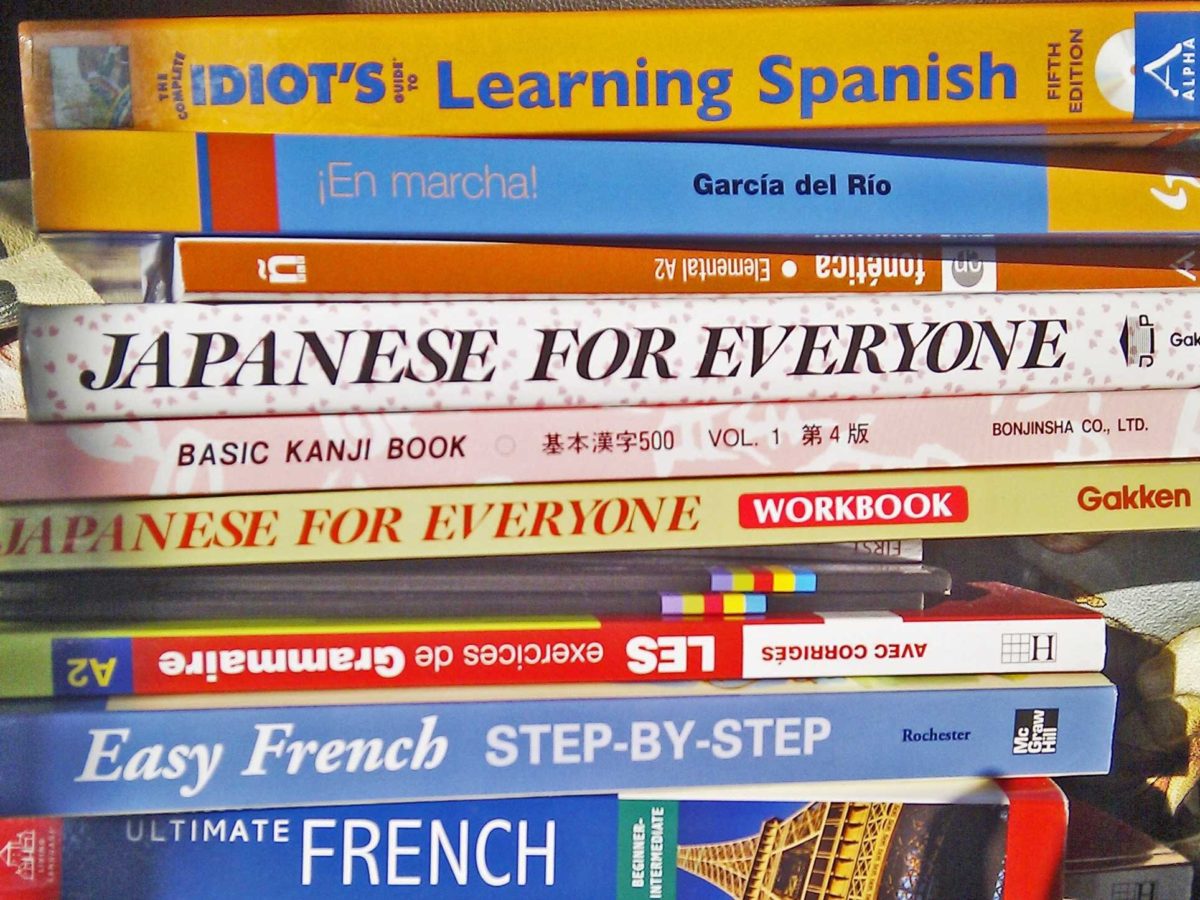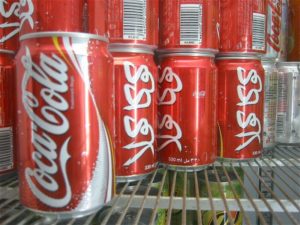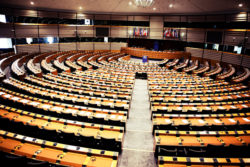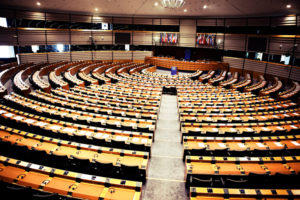What makes Generation Y laugh in Germany, Japan or Brazil? Here is a selection of jokes submitted by Guardian readers across the globe
Watch the video:

German (from Hans Mund, 30)
Treffen sich zwei Planeten, sagt der eine zum anderen: “Na wie geht’s?”
Sagt der andere: “Nicht so gut, ich hab Homo Sapiens.”
Darauf antwortet der erste: “Ja das kenn ich, mach dir nichts draus, das geht vorbei.”
Two planets meet. The first asks: “So, how are you?”
The second answers: “Well, I’m sick, I’ve got Homo Sapiens.”
The first replies: “Oh, I know that one. No worries, it’ll pass.”
Japanese (from NJ Hussain, 27)
パンダの餌は何 ? パンだ! / Panda no esa wa nani? Pan da!
What do pandas eat?
Bread!
Brazilian Portuguese (from Giulia Costa, 23)
Conhece a piada do não nem eu?
Não.
Nem eu.
Do you know the joke of “no me neither”?
No.
Me neither.
Norwegian (from Ole Goethe, 36)
Det var to hvaler som satt på en bar. Og så sa den ene: “Mmmwaamm!”
Den andre hvalen ser på den og bare sier: “Fy faen, du er drita full.”
Two whales are sitting at a bar. One of them suddenly says: “Mmmwaamm!”
The second whale looks over and and says: “Holy shit, you’re fucking drunk.”
Danish (by comedian Sofie Hagen, 25)
I England har jeg lært et nyt udtryk: Dellejæger. Som tyk person synes jeg, at det er mega-underligt. Prø’li’hør, der er aldrig som sådan behov for en jagt. Jeg løber ikke.
Here in England, I learned a new word: chubbychaser. As a fat person, I find that hilarious. Look, there’s never a need for a chase. I don’t run.
Swedish (by comedian Evelyn Mok, 26)
Jag har fått en stalker. Han är överallt, hela tiden. Och hans “grej” är att han skickar andra människor för att förklara sin kärlek för mig. Så jag kan gå en promenad och helt plötsligt så dyker det upp en kvinna som skriker: “JESUS ÄLSKAR DIG.”
I’ve recently got a stalker. He’s everywhere all the time. And his thing is that he sends other people to profess his love for me. So I can be walking down the street and all of a sudden a lady will appear screaming: “JESUS LOVES YOU.”
Finnish (from Antton R, 32)
Minkä liikennemerkin kohdalla Suomessa saa tehdä moottoritiellä U-käännöksen?
Lähestytte Venäjän rajaa.
Which traffic sign allows you to make a U-turn on a highway in Finland?
You are approaching the Russian border.
Hungarian (from Andras Szirko, 30)
Ki az: korán reggel kel, fehér köpenye van, kenyeret süt, de nem pék?
De, pék.
What do you call a man who wakes up early in the morning, wears a white apron, bakes bread, but is not a baker?
No, it is a baker!
Dutch (by comedian Rayen Panday, 30)
Ik woon nog thuis, mijn voorouders komen uit India, die zijn gehaald naar suriname en mijn ouders zijn verhuisd van Suriname naar Amsterdam. Daar ben ik geboren en ik heb niet echt een binding met Suriname of India, maar ik moet je zeggen. Ik vind het wel een beetje raar thuis met die twee buitenlanders.
I still live at home. My great-grandparents are from India, they moved to Surinam, and my parents moved from Surinam to Amsterdam. And I’m born and raised in Amsterdam, but I don’t really have a connection with Surinam and India, I feel Dutch. But I gotta say, it’s a little strange living at home with those two immigrants.
Spanish (from Fernando Acuña, 33)
Un hombre entra en una bodega y dice:
Me daría usted 15 litros de vino?
¿Trae el recipiente?
Está usted hablando con él.
A man enters a store and says: “15 litres of wine please.”
“Did you bring a container for this? ”
“You’re speaking to it.”
Mexican Spanish (from Erica Buist, 29)
Qué le dijo una uva verde a una uva morada?
Respira por Dios!
What did the green grape say to the purple grape?
Oh my God, breathe!
Estonian (by comedian Janika Maidle, 22)
Ma olen vallaline ja see on valik.
Nende valik, kes pole nõus minuga välja tulema.
I am single by choice.
A choice made by those reluctant to date me.
Russian (from Olga N, 30)
Пришел турист в тур-агенство.
Хочу туда не знаю куда.
Кипр, ол-инклюзив, самолетом!
Не безопасно. Самолеты падают.
Солнечная Греция. Пароходом!
Не безопасно. Пароходы тонут.
Автобусный в Европу! Специально и только для вас!
Да ну что вы! А какие аварии бывают на дорогах!
Тогда вот! Пешеходная экскурсия с ceкcуальным уклоном!
О, это мне подходит!
Идите на х%й!
A man walks into a travel agents.
Man: “I would like to go somewhere really special.”
Travel agent: “We have just the thing: an all-inclusive holiday in Cyprus, flying from Moscow.”
Man: “Nah, there have been so many plane crashes, I really wouldn’t feel safe.”
Travel agent: “OK, I can offer you a cruise around the Greek islands then?”
Man: “But there have been so many cruise-liner incidents …”
Travel agent: “In that case, I can offer you a coach tour of Europe?”
Man: “But the road accidents – they are worst of all!”
Travel agent: “Oh, I think I have just the ticket – a walking tour, but I must warn you: it has sexual overtones.”
Man: “That sounds perfect!”
Travel agent: “Go fuck yourself.”
Bosnian (from Sladjana Perkovic, 31)
Bosanac uhvati zlatnu ribicu i ona kaže pusti me ispuniću ti želju a bosanac kaže kakva želja nosim te zlataru zlato je zlato.
A Bosnian catches a goldfish. The goldfish says: “Let me go and I will grant you one wish.”
The Bosnian says: “No way, I’ll take you to the pawn shop – gold is gold.”
French (from Amandine Agic, 28)
C’est deux oeufs dans un frigo.
Un dit à l’autre: “Mais dis donc, t’es drôlement poilu pour un oeuf.”
L’autre répond: “Mais je suis un kiwi.”
There are two eggs in a fridge.
One says to the other: “Hey, you’re quite hairy for an egg.”
The other replies: “But I am a kiwi.”
Greek (from Elina M, 31)
Τρεις άντρες έχουν καταδικαστεί σε θάνατο σε μια μακρινή χώρα: ΄Ένας Άγγλος, ένας Γάλλος και ένας Κύπριος. Την ημέρα της εκτέλεσής τους, τους ζήτησαν να πουν την τελευταία τους ευχή. Ο Άγγλος ζήτησε ένα πούρο, ο Γάλλος ένα ποτήρι κρασί και ο Κύπριος ζήτησε μία τελευταία ευκαιρία να μιλήσει στους εκτελεστές για το Κυπριακό. Ακούγοντας αυτό, ο Άγγλος και ο Γάλλος ζήτησαν να αλλάξουν την τελευταία τους ευχή και ικέτευσαν να εκτελεστούν πριν ο Κύπριος αρχίσει να μιλάει.
Three men are sentenced to death in a faraway country: an Englishman, a Frenchman and a Cypriot. On execution day they are asked to name their last wish. The Englishman asks for a cigar. The Frenchman a glass of wine. The Cypriot asks to be granted a last opportunity to talk to the execution squad about the Cyprus problem. On hearing this, the Frenchman and Englishman change their last wishes and beg to be shot before the Cypriot starts talking.
Dutch (anon, 25)
Twee Belgische boeven besluiten om in de nacht een overal te gaan plegen op een bank. Ze hebben de overval goed voorbereid en besproken zodat ze op de bewuste nacht zonder enige problemen de bank binnen kunnen komen. Die nacht gaan ze inbreken en zonder dat ook maar één van de alarmsystemen afgaat komen ze in de kamer met alle kluizen. De eerste Belg krijgt één van de kluizen open, maar schrikt zich rot wanneer hij erachter komt dat er alleen één potje yoghurt staat. De twee Belgische boeven beginnen alle kluizen open te breken en één voor één vinden ze elke keer weer een potje yoghurt. De ene Belg zegt: “We zijn voor de gek gehouden! Laten we alle yoghurt opeten om hen terug te pakken” en direct beginnen de twee Belgen alle yoghurt op te eten. Wanneer alle yoghurt op is vertrekken de twee Belgen met een volle buik. De volgende dag staat er op de voorpagina van de krant: “Onbegrijpelijke inbraak in de spermabank.”
Two bandits decide to rob a bank at night. They have planned it carefully so that they will have no trouble entering. On the night of the robbery, not a single alarm goes off. When they enter the bank they come across a room filled with vaults. One of the bandits manages to open one of the vaults, only to discover there is nothing inside except a small bowl of yoghurt. The two bandits open up all the vaults, one by one, and each vault only contains a small bowl of yoghurt. “We have been cheated! Let’s eat all the yoghurt to get back at them!” The two bandits eat all the yoghurt and leave with their bellies full. The next day all the papers have the same headline: “Unexplained robbery at spermbank.”
Macedonian (from Mila Damyanoska, 22)
Само 20 проценти од Македонците живеат во стрес и револт. Другите 80 проценти живеат во Австралија, Америка, Канада, Германија, Шведска, Велика Британија …
Only 20% of Macedonians live in stress and revolt. The other 80% live in Australia, the US, Canada, Germany, Sweden, the UK …
Hebrew (from Rachel Goldberg, 26)
יהודיה פולניה קמה באמצע טיסה לארה”ב וצועקת: “יש כאן רופא??”. בחור נחמד ורציני ניגש אליה מהר ואומר לה: “כן מה הבעיה?”. היא עונה לו: “אתה רוצה אולי להכיר את הבת שלי?”.
A Polish Jewish woman gets up mid-flight to the US and shouts: “Is there a doctor here?” A nice, serious guy approaches her quickly and tells her: “I am. What is the problem?” She replies: “Do you want to meet my daughter?”
Source: www.theguardian.com






